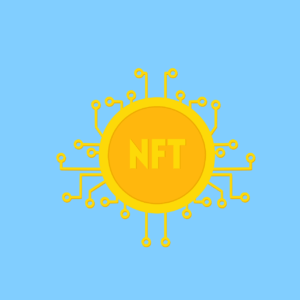By Steve McCloskey. Originally published at ValueWalk.

Can NFTs revolutionize science? Some think so. Depending on who you ask, they might say that NFTs can make science popular with the public or even open up new avenues for funding. Still others might note that scientists could earn royalties from their contributions to science using NFTs to track uses.
Scientific products such as NFTs may be owned by research institutions or citizen-scientists. Revenues from replicating scientific documents, etc. into NFTs can be used to fund further research prior. Whenever an NFT is purchased or traded for a scientific artifact, the creator of the NFT (which may be a research organization or individual) earns a certain royalty.
Q4 2021 hedge fund letters, conferences and more
How NFTs Can Impact Science
It remains to be seen whether science-related NFTs create incentives to showcase science to the public or not. Ideas about how NFTs can impact science remain in their nascent stages, but many believe NFTs can protect intellectual property and generate income for research organizations or independent scientists.
One example of NFTs being deployed in science comes out of UC Berkeley, which sold NFTs based on certain Nobel Prize-winning scientific patents. In doing so, the University demonstrated that using NFTs for a scientific paper could be a means of creating a unique record of a particular paper and even creating a new mechanism of showing the paper to the rest of the world.
The NFTs themselves represented commemorative artwork of the patent disclosures by two Nobel Prize-winning inventions from the University’s research labs. The NFTs are linked to documentation of the initial research findings for Jennifer Doudna’s CRISPR-Cas9 gene editing and James Allison’s cancer immunotherapy. The auction took place on Foundation, an Ethereum-based NFT auction platform.
“Someone might ask, ‘Why would I want a digital version of some internal university form?’ Because it represents something magnificent,” according to Rich Lyons, UC Berkeley’s chief innovation & entrepreneurship officer. “There are people who recognize and care about symbols of great science.”
There are other potential use cases, as well, for NFTs in science. Companies are experimenting with the idea of using NFTs to sell genomic data so as to empower users with more control of their data and direct profits straight to the individuals, encouraging more people to get their genome sequenced.
The Use Of NFTs In Healthcare
Patients, too, could benefit from the use of NFTs in healthcare. Everyone knows personal health information is sensitive. Furthermore, with the proliferation of big data and machine learning, such data has become more valuable than ever. The health information exchange market today excludes patients in favor of commercial entities. There might arise perverse incentives for sharing data.
Patients have little control of how their data is shared, with whom, and so on and so forth. NFTs represent a new form of digital ownership. NFT technology makes possible patient-controlled health data marketplaces by making possible a more democratized and transparent health information market which includes patients.
So far, only a few science industry-based auctions have taken place in the NFT world. Nevertheless, NFTs could democratize science and revolutionize the way in which fundraising for research works. In addition, NFT has a feature that you can turn on that will pay you a percentage each time an NFT is sold or changes hands, ensuring that if a scientific contribution becomes super popular, the scientist will see some of these benefits in the form of NFT-based rewards or otherwise.
About the Author
Steve McCloskey is an alumnus of the first class of Nanoengineering at the University of California, San Diego. Steve’s work is focused on emerging technologies applied to Science, Technology, Engineering and Mathematics (STEM). After graduating from UCSD, he founded Nanome Inc to build virtual reality solutions for scientists and engineers working at the nanoscale, specifically protein engineering and small molecule drug development, as well as develop a metaverse in order to make scientific research more efficient and collaborative.
Updated on
Sign up for ValueWalk’s free newsletter here.



